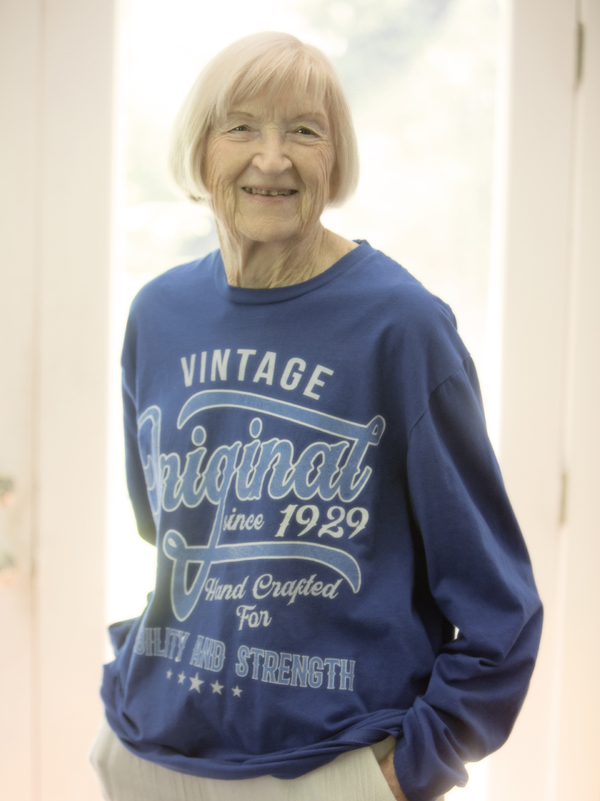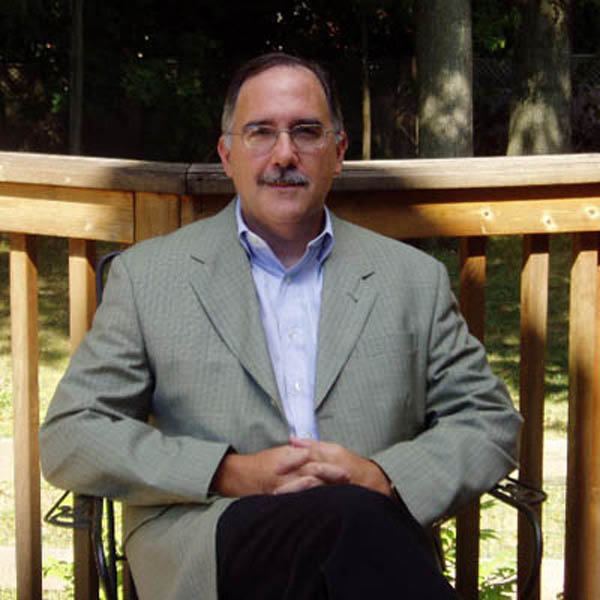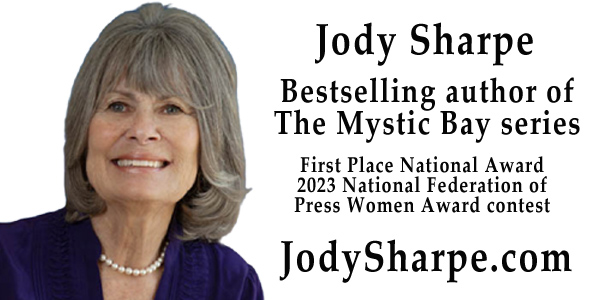Best-selling author Frances Fuller offers an insider’s view of assisted living and a unique outlook on aging, based on her own experience. Her insights are penetrating and deal with issues that many seniors and their families are concerned about.
WILMINGTON, NC, November 25, 2024 /24-7PressRelease/ — If you have spent any time at all on the Internet, you are likely aware that gratitude has become a focus topic for many, many people and rightly so. Gratitude involves recognizing and appreciating the positive aspects of our lives, such as the people, experiences, and things that bring us joy and happiness. By focusing on what we are grateful for, we can shift our mindset from a negative to a positive one, which can help us feel more optimistic, hopeful, and content.
But there is another way of approaching this subject that adds even more power to this concept – being grateful for our mistakes and regrets. That is the essence of Fuller’s recent blog post titled, “All Year Gratitude.” In that post she wrote in part:
From somewhere I got a message ‘way back last January:
“This is not the year for you to get everything you want; it is the year for you to be grateful for everything you have.”
Because I wanted to quote this and not commit plagiarism, I looked up the origin of the saying, and I found it attributed to Phillips Brooks, in 1916. Before any of us clever people had ever been born.
Frankly, the principle expressed seems simple. Maybe you tend to think, as I do, that the truth it states is rather obvious and any of us might happen to blurt it out, half thinking, at some enlightened moment.
However, we didn’t, and our lives are full of things we don’t want as well as things we worked hard to get, and being thankful for some experiences is difficult.
Regrets hang around. I don’t know about you, but I did not get to be 95 with nothing but good memories. I regret some things I did, things I said, things I didn’t say, some mere blunders but some because I was mad or resentful or just weak. Sometimes these mistakes jump on me in the dark, in the middle of the night when I would otherwise be asleep.
However, this whole year I have read a lot of Richard Rohr’s work. He makes me think more deeply than I might otherwise, and sometimes I am thrilled and sometimes I am not sure I understand. Maybe I was a little bit of both (thrilled and mystified) when I read in one of his books: “Don’t regret anything, because God has already used it.”
Now there’s an idea I love! I want it to be true—that God used my careless word, my failure to act when I should have, my wrong choice. I know that God can do what I can’t imagine, but. . .
The full text of the piece is available at https://www.inborrowedhouseslebanon.com/all-year-gratitude/.
In ‘Helping Yourself Grow Old, Things I Said To Myself When I Was Almost Ninety’, Frances Fuller, an award-winning, bestselling author, shows us what that looks like. Some of it is not pretty, but she pulls no punches in providing readers with a closeup view of what it means to age well.
Unable to find a guidebook for aging, Fuller decided that she must figure out for herself how to live wisely through the puzzles and possibilities of aging, and while she learned she wrote. The result is thirty-eight personal essays, most of them resolves, promises she is making to herself and her family. In them she deals with such issues as grief, loneliness, physical limitations, fears, duties, and with the significance of her own life story. Guided always by her Christian faith, she tries to make sense of her own past and to understand her responsibility to younger generations. In the process she shares her daily life, enriched with memories from her fascinating experiences. Her stories and her voice—fresh, honest, irresistible—keep the reader eager for more. Her questions are universal. Her answers create a map through the challenging terrain of old age.
Frances Fuller’s book is unique among the many books on aging, because it is personal, while most such books are written from an academic point of view. Most are penned by sociologists, doctors, gerontologists, even the CEO of AARP, and one by a Catholic nun, Joan Chittister. Chittister’s book, ‘The Gift of Years’ is beautifully written, focusing on spiritual values and finding meaning in life. Chittister admits in the preface that she was only 70, which is the front edge of aging, and her book is somewhat abstract.
Atul Gawande’s book, ‘On Being Mortal’, relates medicine and old age, It enjoys high Amazon rankings, in the category of “the sociology of aging.” It contains a great deal of valuable scientific information and shows understanding of the physical and emotional needs of the elderly.
Frances Fuller’s book, ‘Helping Yourself Grow Old, Things I Said To Myself When I Was Almost Ninety’, is an up-close and very personal encounter with aging. It is an uncontrived and firsthand look at her own daily experiences: wrestling with physical limitations, grief, loneliness, fears, and the decisions she has made about how to cope with these and keep becoming a better person. She faces regrets and the need to forgive herself and others and is determined to live in a way that blesses her children and grandchildren.
Frances deals with many common, universal but sometimes private issues in an open, conversational tone. Her confessions and decisions invite self-searching and discussion. She tries to make sense of her own past and to understand her responsibility to younger generations. In the process she shares her daily life, enriched with memories from her fascinating experiences. Her stories and her voice — fresh, honest, irresistible — keep the reader eager for more. The end result is a book that helps create a detailed map through the challenging terrain of old age.
The result of this intimate narrative is that readers laugh, cry and identify with her mistakes and problems. Reviewers have called the book, “unique,” “honest,” “witty,” “poignant,” “challenging” and “life-changing.”
For these reasons it is a book unlike any other book on aging you will ever read. The book can serve as a primer on what lies in store for all of us, from someone who is working through many of these issues. While the book is a perfect fit for book clubs, there are many other individuals and groups who could benefit from the information and ideas in the book:
Those approaching retirement
People who are currently retired
Children of aging parents
Those who have lost a spouse
Retirement community discussion groups
Counselors
Educators
Life coaches
Church groups (men and women)
and a host of others. For group discussions, Fuller has made a set of discussion questions available at her website at http://www.FrancesFullerAuthor.com.
Readers have lavished praise on the new book. One Amazon review stated, “I find myself thinking,’I need to read this again and take notes!’ It’s full of wisdom, humor, and grace. I also have committed to rereading it annually – it’s that important!” Another said, “There is valuable life experience in this book. Helping Yourself Grow Old is truly is a book for all ages, and one not to be missed.” Another stated, “Beautifully written book telling timeless truths, for both the old and the young. Highly recommend this book for anyone who loves to laugh, cry, and learn wisdom from someone who has lived so much life.”
Frances’ prior work, ‘In Borrowed Houses’, has taken three industry awards and has achieved Bestseller status. Frances Fuller was the Grand Prize winner in the 2015 ’50 Great Writers You Should Be Reading’ Book Awards. It received the bronze medal for memoir in the Illumination Book Awards in 2014. Northern California Publishers and Authors annually gives awards for literature produced by residents of the area. In 2015 ‘In Borrowed Houses’ received two prizes: Best Non-fiction and Best Cover.
Critics have also praised ‘In Borrowed Houses.’ A judge in the 22nd Annual Writer’s Digest Self-Published Book Awards called ‘In Borrowed Houses’ ” . . a well written book full of compassion . . . a captivating story . . . “. Another reviewer described the book as “Wise, honest, sensitive, funny, heart-wrenching . . .”. Colin Chapman, lecturer in Islamic Studies at the Near East School of Theology in Beirut said, ” . . . western Christians and Middle Eastern Christians need to read this story…full of remarkable perceptiveness and genuine hope.”
Frances has shared stories about her life in an interview with Women Over 70, and a recording is available on their Facebook page.
Frances Fuller is available for media interviews and can be reached using the information below or by email at frances0516@att.net. The full text of her latest article is available at her website. Fuller’s book is available at Amazon and other book retailers. A free ebook sample from ‘In Borrowed Houses’ is available at http://www.payhip.com/francesfuller. Frances Fuller also blogs on other issues relating to the Middle East on her website at http://www.inborrowedhouseslebanon.com.
About Frances Fuller:
Frances Fuller spent thirty years in the violent Middle East and for twenty-four of those years was the director of a Christian publishing program with offices in Lebanon. While leading the development of spiritual books in the Arabic language, she survived long years of civil war and invasions.
—
For the original version of this press release, please visit 24-7PressRelease.com here





